Keynote & Plenary Speakers
In addition to breakouts with technical presentations, NCER features daily plenaries addressing the many pressing challenges restoration professionals face across the country. We are pleased to announce an impressive lineup of accomplished individuals who will inform us, inspire us, and sharpen our vision for future restoration success across diverse landscapes. Click on any of the images or names of speakers below to read more about them.

Jerry Franklin
University of Wahsington
Seattle, WA
Monday, August 3, 2020
Grand Ballroom | 9:00am
Jerry Franklin is a world-renowned forest ecologist who has been called “the father of new forestry.” He is a leading authority on sustainable forest management and the maintenance of healthy forest ecosystems, and was responsible for integrating ecological and economic values into harvest strategies. In addition to his research, he has served on numerous committees and working groups, and has been President of the Ecological Society of America. Throughout his distinguished career, he has received numerous awards, including an Award for the Environment from the Heinz Foundation, and a LaRoe Award for lifetime contributions to conservation biology, from the Society for Conservation Biology. He was recently was elected to the American Academy of Arts and Sciences, where he has been recognized as a leading visionary in forest ecology and conservation. In 2016, he received the Eminent Ecologist Award from the Ecological Society of America and was awarded the Pinchot Medallion by the Pinchot Institute for Conservation.
Jerry’s early experiences in Oregon and Washington forests inspired his career as a forest ecologist. A research forester and chief plant ecologist for the U.S. Forest Service in Corvallis and professor of forest sciences at Oregon State University , he was an early advocate for applying New Forestry methods of ecosystems theory to the management of old-growth and other forest stands in the Pacific Northwest. Franklin developed an innovative approach that linked American forestry with broader initiatives to monitor, understand, and manage ecosystems in an integrated, global network of scientific cooperation. He was appointed professor in the University of Washington’s School of Forestry in 1986, and in 2016 was named professor of ecosystem analysis (as of 2016-2017) in what is now the School of Environmental and Forest Science.

Janine Castro
Project Leader
U.S. Fish and Wildlife Service, Vancouver, WA
Monday, July 26, 2021
2:10pm
Janine Castro is the Project Leader for the Columbia River Fish and Wildlife Conservation Office (CRFWCO) in Vancouver, Washington. It is the mission of the CRFWCO to assist in determining the status of imperiled natural fish stocks, to evaluate management measures for recovery and assist in the recovery of these stocks, and to prevent future ESA listings. As the Project Leader, Janine provides leadership to a highly diverse technical staff that address a wide variety of fisheries issues, including: (1) fish passage and aquatic habitat restoration, (2) bull trout recovery and lamprey conservation, (3) marking and tagging of nearly 40 million hatchery fish annually to support tribal, recreational, and commercial mark-selective fisheries, (4) mark-recapture studies of wild fish to determine occupancy, distribution, abundance, trends, and population growth rates, and (5) providing analytical support to project design, evaluation, and information management.
Janine provides national and international training on stream restoration, river science, and public speaking for scientists. She has worked for the Fish and Wildlife Service for 19 years and spent the preceding 10 years working for the Natural Resources Conservation Service. Janine is co-founder of Science Talk, one of the five founding members of River Restoration Northwest, adjunct faculty in the Environmental Sciences and Management Department at Portland State University, and the Technical Director for the PSU River Restoration Professional Certificate Program.
Education: BS Geology and BA Geography, 1991, CSU Chico; MS Interdisciplinary Studies, Environmental Geomorphology, 1993, CSU Chico; PhD Geosciences, 1997, Oregon State University, Corvallis.
Specialties: Aquatic Habitat Restoration, Geomorphology, Science Communication

Stan Gregory
Department of Fisheries & Wildlife
Oregon State University, Corvallis, OR
Monday, July 26, 2021
Dr. Stan Gregory is an Emeritus Professor and Distinguished Professor of Fisheries in the Department of Fisheries & Wildlife at Oregon State University. He began studying streams in the H.J. Andrews Experimental Forest since 1971. He has been a faculty member in the Department of Fisheries & Wildlife at OSU since 1981 and has been a leader of the Stream Team for more than three decades. He taught undergraduate and graduate courses in stream ecology, limnology, and restoration ecology at OSU for more than 30 years and retired from teaching in 2014. He was co-chair and member of the Independent Multidisciplinary Science Team for the state of Oregon. He currently serves on the Independent Scientific Advisory Board and the Independent Scientific Review Panel for the Northwest Power and Conservation Council.
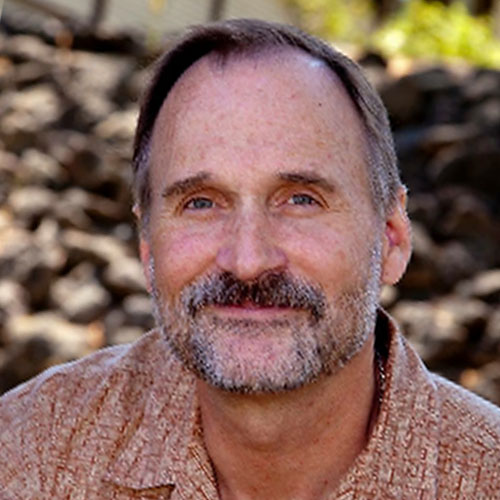
Paul Hessburg
Research Landscape Ecologist
USFS, Pacific Northwest Research Station (PNWRS)
Monday, August 2, 2021
2:10pm
Dr. Paul Hessburg is a Research Landscape Ecologist with the USDA Forest Service, Pacific Northwest Research Station (PNWRS), where he studies management influences on forest landscapes and their disturbance regimes. Paul has worked in R&D for 41 years, researching the landscape and disturbance ecology of western US and North American forests. His team explores climate change effects on forest and nonforest patterns, wildfire resilience mechanisms and their persistence under climate change, reburn influences on forest fuel succession and wildfire behavior, and tool development for landscape evaluation. He co-led the Landscape Assessment of the Interior Columbia Basin from 1993-2000, which was the largest bioregional assessment conducted anywhere in North America, and he led the Landscape-Climate Interactions Team of the PNWRS for a decade ending in 2011. He holds a PhD in Botany and Plant Pathology from Oregon State University (1984), a BS in Forestry from the University of Minnesota (1978), and has authored more than 200 refereed articles, books, and book chapters. In 2017, he received the PNWRS and the USDA-FS Chief’s Distinguished Scientist awards. He resides in Wenatchee, WA, is married with grown kids, and he and his wife Mary have six nearly perfect grandchildren.
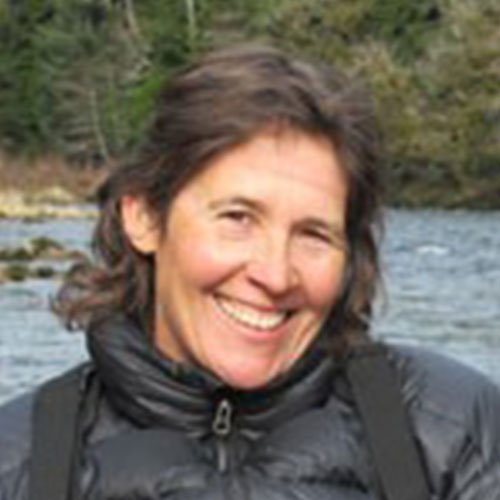
Sara LaBorde
Executive Vice President
Wild Salmon Center, Portland, OR
Monday, August 3, 2020
Grand Ballroom | 11:10am
Part 1: Regional Plenary Fire and Floodplains: Human Dimensions and Restoration Opportunities in the Pacific Northwest
Salmon Restoration of Estuarine and Freshwater PNW Habitats Essential for Adult and Juvenile Salmon: The Central Role of Floodplains
Sara joined the Wild Salmon Center in August 2012 and has over 30 years of professional experience in natural resources policy, business management, and environmental education. Sara earned a B.S. and M.S. in Natural Resource Management from the University Wisconsin-Stevens Point. She brings a wealth of experience in working with federal and state agencies, Tribes, local governments, and other stakeholders in salmon protection and recovery. Prior to joining WSC, Sara was the Special Assistant to the Director of Washington Department of Fish and Wildlife (WDFW) where she worked on salmon recovery, hatchery and harvest reform, and the development of alternative fishing approaches for the Lower Columbia River. She served as WDFW’s federal liaison in Washington DC and was the Regional Director for WDFW’s Coastal and Hood Canal region as well as Special Assistant to the Washington Wildlife Commission. Sara also served as the Chair of the North American Salmon Stronghold Partnership.
Sara is very passionate about WSC’s mission and brings a combination of energy, experience, and strategic thinking to the organization and its conservation programs. She lives in Portland, Oregon and enjoys golfing, catching fish and sampling small-batch American whiskeys.
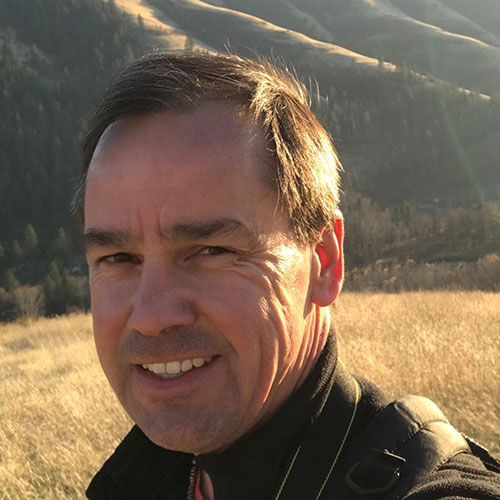
Eric Quaempts
Director
Department of Natural Resources
Confederated Tribes of the Umatilla Indian Reservation
Monday, August 2, 2021
2:40pm
Eric Quaempts has served as the Director for the Confederated Tribes of the Umatilla Indian Reservation’s (CTUIR) Department of Natural Resources (DNR) since 2004. He developed and implemented the First Foods management approach in 2006, and has overseen the implementation of the CTUIR’s “River Vision” beginning in 2008. Previously, Eric spent eight years as a Wildlife Biologist in the CTUIR DNR’s Wildlife Program and eight years on the Umatilla National Forest where his career development included inter-disciplinary rotations in Forestry, Wildlife, Range, Reforestation, Fisheries, and Fire Management Programs on the Walla Walla Ranger District.
As the CTUIR’s DNR Director, Eric oversees DNR Administration, Cultural Resources Protection, Water Resources, Fisheries, Wildlife, Range/Ag, Forestry, Energy and Environmental Sciences, and First Foods Policy programs. Eric served as the Oregon Tribal representative to the Oregon Watershed Enhancement Board from 2009 – 16, including five as co-chair. Eric received Potlatch Fund “Billy Frank Jr. Award for Natural Resource Protection” in 2011 and was an Eco-Trust Honoree for Indigenous Leadership in 2014. He also served on the Athena-Weston School board from 2011-12 and currently serves on the Oregon Water Resources Commission. He earned his Bachelor’s of Science in Wildlife Science from Oregon State University in 1990.
An enrolled member of the Confederated Tribes of the Umatilla Indian Reservation, Eric has spent most of his life living on the Umatilla Indian Reservation, where his cultural and personal experiences contributed to the development of the CTUIR’s First Foods management approach.
Eric’s personal interests include family (His daughter, Sascha, is nine), fly-fishing, photography, biking, traveling, cooking, and dining, fine or otherwise.
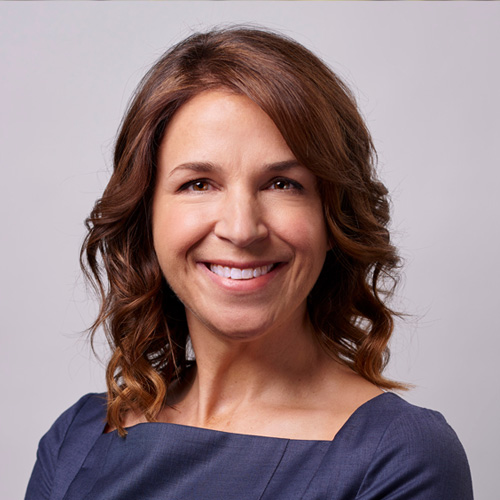
Hilary Franz
Commissioner of Public Lands
Washington State Department of Natural Resources
Monday, August 3, 2020
Grand Ballroom | 8:30am
Welcome to Portland/Vancouver and PNW
Elected in 2016, Commissioner of Public Lands Hilary Franz protects and manages nearly six million acres of public lands in Washington State – from coastal waters and aquatic reserves, to working forests and farms, to commercial developments and recreation areas. Commissioner Franz is committed to ensuring our public lands are healthy and productive, both today and for future generations. She holds a bachelor’s degree from Smith College and a juris doctor from Northeastern University Law School.
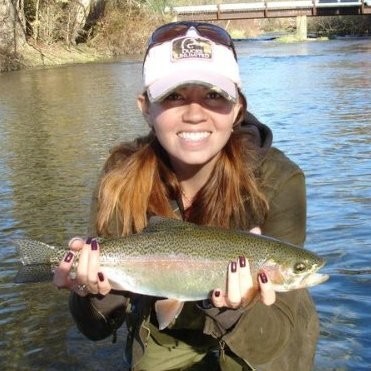
Rachel Dawson
Program Director - Delaware River, National Fish & Wildlife Foundation, Northeastern Regional Office, Washington, DC
Tuesday, July 27, 2021
11:10am
Rachel is the program director for the Delaware River at the National Fish and Wildlife Foundation where she administers a growing $13 million fund for habitat and water quality restoration projects in the Delaware River watershed. She is responsible for program development and fundraising, partner and collaborator coordination, and regional investment strategy and planning. Previously, she was the legislative representative for the water restoration team at the National Wildlife Federation where she advocated on behalf of clean water laws, policies and programs for large-scale ecosystem restoration—and a policy analyst at the Northeast Midwest Institute, focusing on issues in the watersheds of the mid-Atlantic, including the Delaware River Basin. Rachel received her Master’s degree in Environmental and Natural Resources Policy from the George Washington University and her Bachelor’s degree in Environmental Planning from the University of Miami. In her free time, she’s an avid hunter, angler and outdoor mentor.
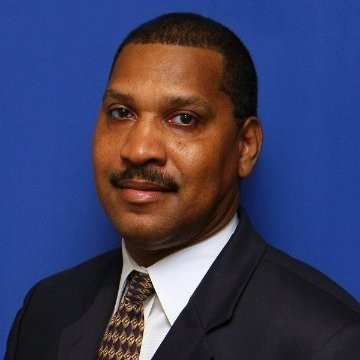
Homer Wilkes
Director
Gulf of Mexico Ecosystem Restoration Team, USDA, NRCS, Madison, MS
Tuesday, July 27, 2021
11:35am
Dr. Homer Wilkes, a native of Port Gibson, Mississippi, currently serves as Director of Gulf of Mexico Ecosystem Restoration Team. He is one of the five Federal Executive Council member to oversee the rebuilding of the Ecosystem of the Gulf of Mexico after the BP Oil Spill of 2010. He served as the Acting Associate Chief of USDA/Natural Resources Conservation Service (NRCS) in Washington during the period of 2010-2012.
During Dr. Wilkes’ tenure with the United States Department of Agriculture, he also served as State Conservationist for Mississippi; Chief Financial Officer for NRCS in Washington, DC; Deputy State Conservationist for Mississippi; Chief of Administrative Staff for the South Technical Center for NRCS in Fort Worth, Texas; Budget Analyst and Financial Manager in Washington, DC.
Dr. Wilkes also served as Naval Supply Officer in the United States Navy Reserves from November 1984 – December 2010. He received his Bachelors, Master of Business Administration, and Ph.D. in Urban Higher Education from Jackson State University. He also successfully completed the USDA Senior Executive Service Candidate Development Program (SES CDP) through American University’s Key Executive Leadership Certificate in Public Policy Implementation Program. Dr. Wilkes and his wife, Kim, have three sons. He enjoys fishing and family activities.

Ellen Herbert
Ecosystem Services Scientist
Conservation, Ducks Unlimited, National Headquarters, Memphis, TN
Tuesday, July 27, 2021
12:00pm
Dr. Herbert the Ecosystem Services Scientist at Ducks Unlimited (DU), a nonprofit organization committed to wetland conservation across North America with special emphasis on wetland and grassland habitats critical to waterfowl populations. To date, Ducks Unlimited has conserved over 14.5 million acres of habitat and influenced over 177 million acres of habitat through policy measures. Dr. Herbert works as a member of DU’s International Science Team to evaluate the ecosystem services outcomes of Ducks Unlimited’s conservation work across the continent through a combination of field experimentation, numerical modeling, and data synthesis. This work supports DU’s goal of accelerating wetland conservation through public awareness, public-private partnerships, and public policy.
Dr. Herbert is a member of the Steering Committee of the Natural Infrastructure Initiative and the Verification Committee of Field to Market: The Alliance for Sustainable Agriculture. Prior to joining Ducks Unlimited, Dr. Herbert researched the functional development of restored wetlands in the agricultural wetlands of the Midwest, assessed the impacts of sea level rise on vegetation and geomorphology of wetlands across the San Francisco Bay-Delta, studied the impacts of saltwater intrusion and eutrophication on tidal freshwater wetlands at the Georgia Coastal Ecosystems LTER, and developed models of coastal wetland response to climate change.
Dr. Herbert received her Ph.D. in Environmental Science from the School of Public and Environmental Affairs at Indiana University, where she was a graduate research fellow for the National Science Foundation and completed her post-doctoral research in the Department of Physical Sciences at the Virginia Institute of Marine Science.

Esther Duke
Western Program Director
LightHawk, Denver, CO
Thursday, July 29, 2021
11:10am
Esther Duke is the Western Program Director at the conservation non-profit LightHawk where she accelerates conservation success through the powerful perspective of flight. Esther is passionate about building capacity for collaborative and performance-based conservation. She develops and manages projects and partnerships to realize conservation outcomes using flight campaigns throughout the Western United States, Canada, and Mexico.
Esther is also a member of the Sonoran Joint Venture board. Previously, Esther directed outreach and capacity building programs focused on conservation social science, human-wildlife conflict mitigation, environmental market design, and nature-based tourism at Colorado State University (CSU).
Esther received her M.S. in Human Dimensions of Natural Resources at CSU and her B.A. from Illinois Wesleyan University.
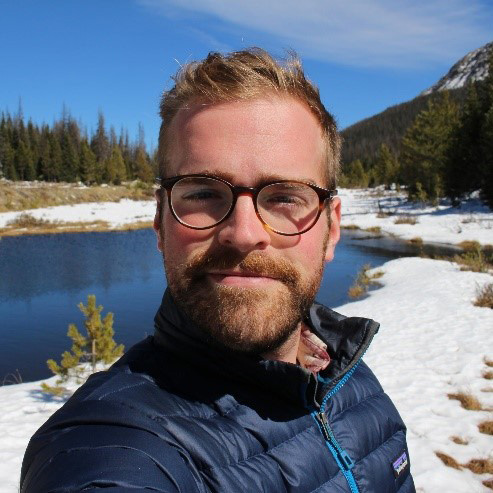
Luke Runyon
Reporter
Colorado River Basin, KUNC Radio Station, Greeley, CO
Wednesday, August 5, 2020
Grand Ballroom | 9:05am
Luke Runyon reports on the Colorado River basin and western water issues for a network of public radio stations in the southwest, based at NPR member station KUNC in Greeley, Colorado. He frequently files stories for NPR’s Morning Edition, All Things Considered, Weekend Edition and APM's Marketplace. Prior to KUNC, Luke reported for Harvest Public Media, Aspen Public Radio and Illinois Public Radio. He has a master’s degree in public affairs reporting from the University of Illinois Springfield and his work has received awards from the Radio Television Digital News Association, the Colorado Broadcasters Association and Public Radio News Directors, Inc.

Jeremy Monroe
Founder & Director
Freshwaters Illustrated, Corvallis, OR
Thursday, July 29, 2021
11:40am
Jeremy Monroe founded Freshwaters Illustrated, a non-profit organization that educates a diverse public audience about the beauty and conservation of freshwater ecosystems through illustrative science-based resources including films, photographs and workshops.
Freshwaters Illustrated helps create more immersive imagery and stories that carry the beauty, biodiversity, and value of freshwater ecosystems. Jeremy sees his job as helping to reconnect people to the intricacy, wonder, and needs of rivers, lakes, and wetlands.
His background in aquatic ecology helps him access stories that celebrate the vibrance and value of freshwater life, and with a talented group of visual artists and communicators, he works to make those stories as immersive as they can be. Jeremy holds degrees in Aquatic Ecology and Fishery Biology from Colorado State University.
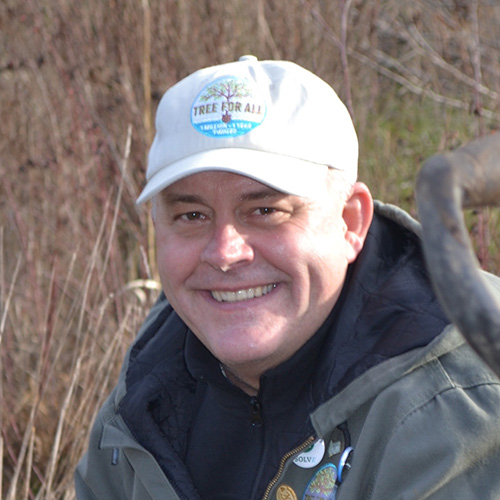
Bruce Roll
Director
Natural Systems, Enhancement & Stewardship, Clean Water Services and Clean Water Institute (CWI), Hillsboro, OR
Tuesday, August 3, 2021
11:10am
Bruce Roll is the Director of Natural Systems, Enhancement & Stewardship for Clean Water Services (www.cleanwaterservices.org) and the nonprofit Clean Water Institute (CWI) in Hillsboro, Oregon. He is also a founding member of the Intertwine Alliance (www.theintertwine.org) and key developer of the Tree For All Landscape Conservation Program (www.jointreeforall.org). For more than 30 years, Bruce has worked with public utilities and local governments interested in the conservation of natural resources.
Since 2007, Bruce has helped manage one of the United States’ largest and most successful landscape conservation programs the Tualatin Watershed of northwest Oregon. During his tenure at CWS, more than 140 river miles have been restored across more than 30,000 acres in the Tualatin Watershed.
Bruce attended Colorado State University where he received a BS in Environmental Microbiology. In addition, Bruce received a MS and PhD from the Water Resources Research Center at the University of Hawaii and a MPH in management from the School of Public Health.

Robert Johnson
Director
South Florida Natural Resources Center (SFNRC), a division of Everglades National Park (ENP), National Park Service, Homestead, FL
Tuesday, August 3, 2021
11:40am
Robert Johnson has served as Director since October 1995, seeing the Center through the settlement of the Water Quality Lawsuit, through much of the planning and implementation of the Modified Water Deliveries Project, and through the development of the Comprehensive Everglades Restoration Plan (CERP). Bob has represented the National Park Service on more than 20 advisory and technical committees charged with protecting and restoring the south Florida environment. These committees have spanned a broad range of topics from water quality protection and water supply planning, to watershed management, land use planning, and interdisciplinary science coordination. Bob has been called to serve as a technical expert on more than 25 litigation cases in federal and state courts and has represented NPS positions before Florida's Governor and Cabinet as well as other state and federal legislative bodies.
Bob holds a B.S. in Geology from James Madison University and an M.S. in Environmental Sciences/Water Resources from the University of Virginia with additional graduate coursework completed at Florida International University. He started working for the Center in 1983 as a staff Hydrologist, later serving as Supervisory Hydrologist, and then as Branch Chief both for Physical Resources and for the former Ecosystem Analysis and Modeling branch. Bob has received numerous NPS awards including the Southeast Region Director's Award for Science in 1990 and in 1992, an NPS Honor Award for Superior Service in 1995, and two awards for Natural Resource Management in 2001: The Southeast Region Director's Award and the NPS Director's Award. Also, in 1997 he received the George Barley Award for sustained public service at the annual Everglades Coalition Conference.
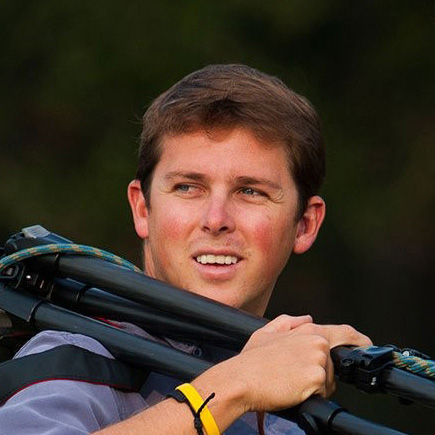
Mac Stone
Photographer and Executive Director
Naturaland Trust, Greenville, SC
Thursday, August 5, 2021
4:00pm
Mac Stone is a National Geographic Explorer and an internationally acclaimed conservation photographer. His images help tell the complex stories of wetlands and wilderness through the wildlife and people who rely upon them. Photographing for publications and organizations around the world, Stone's roots come from the swamps, estuaries, springs and Everglades of his home state. His images have been widely published and honored and his TED talk has been viewed over a million times. An author, speaker, and senior fellow with the International League of Conservation Photographers and Sea Legacy, he strives to expose the dynamic relationship between mankind and the natural world to drive conservation initiatives. His award-winning book, Everglades: America's Wetland, is a visual journey through the River of Grass and aims to bring awareness to Everglades restoration efforts. He is currently working on a new book that explores the remaining old growth swamps left in the United States. Join us for this upbeat and inspiring presentation as a reminder why what you do makes a difference. To see his work visit www.macstonephoto.com .
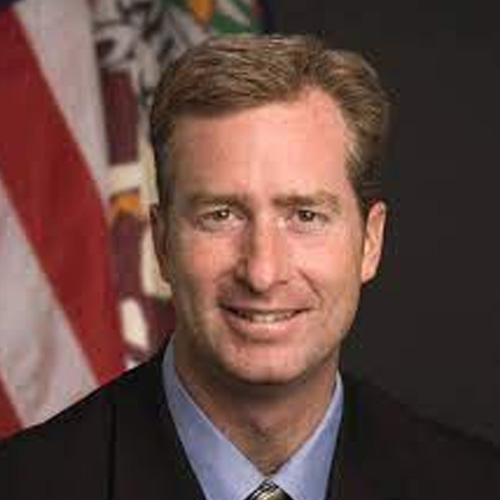
David Bulova
CBC Chairman
Virginia House of Delegates (D-37)
Chesapeake Bay Commission (CBC), Richmond, VA
Thursday, July 29, 2021
4:00pm | 4:35pm
David Bulova and his family live in the Middleridge community of Fairfax. David and his wife Gretchen met while attending Robinson Secondary and have been married for 27 years. They have three wonderful children, Alex, Josette, and Grayson. David and Gretchen are proud of their hometown. They want to raise their children to have the same opportunities and with the same community-focused values they had growing up here.
Both David and Gretchen grew up in Fairfax. David received a BA from the College of William and Mary, a Master's in Public Administration and Policy from Virginia Tech, and is a graduate of the Sorensen Institute of Political Leadership at the University of Virginia.
Professionally, David is a Project Manager at Wood Environment & Infrastructure Solutions, Inc. and works to help local governments and industry comply with state and federal environmental regulations.
David was first elected to the General Assembly in November 2005. He currently serves on the General Laws, Appropriations, Education, and Agriculture, Chesapeake, and Natural Resources committees. He is chair of the General Laws Committee and chair of the Appropriations Subcommittee on Commerce, Agriculture, and Natural Resources. David has been appointed by the Speaker to serve on the Chesapeake Bay Commission (chair), Housing Commission, State Water Commission (chair), and Major Economic Investment Commission. He also serves on the Legislative Advisory Council to the Southern Region Education Board and the Legislative Advisory Board to the Virginia Water Resources Research Center. From 2003 to 2005, David was an elected representative on the Northern Virginia Soil and Water Conservation District Board.
David is passionate about community service. He is currently on the Board of Trustees of Brain Injury Services, which provides support to survivors of brain injuries and their families, the Board of the City of Fairfax Band, and the Board of Advisors for the William and Mary Public Policy Program. His is also an honorary member of the Rotary Club of Centreville-Chantilly. Other community service includes: former coach with Fairfax Little League and Burke Athletic Club soccer; former member and treasurer of the Rotary Club of Annandale (1999-2002); former member of the Fairfax County Tree Commission (2004-2005); and, former Governor's appointee to the Chesapeake Bay Local Assistance Board. David and Gretchen served as co-chairs of the annual Middleridge community National Night Out crime prevention and awareness event for seven years.
In their spare time, David and Gretchen are avid hikers and David enjoys serving as the co-chair of the General Assembly's Outdoor Recreation Caucus.
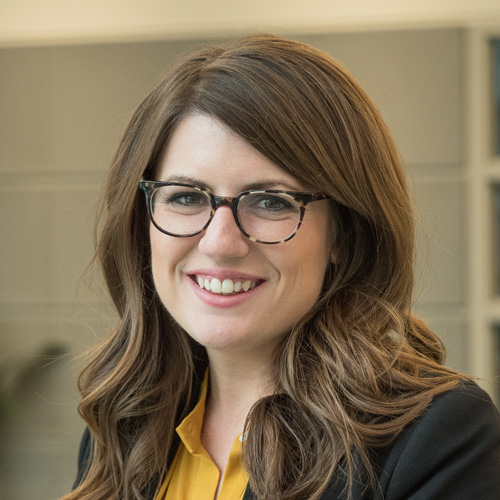
Sarah Elfreth
Senate of Maryland (D-30)
Chesapeake Bay Commission (CBC), Annapolis, MD
Thursday, July 29, 2021
4:35pm
Elected in 2018 to represent Annapolis and southern Anne Arundel County, Senator Sarah Elfreth is the youngest woman ever elected to the Maryland Senate. She is passionately committed to serving her constituents both in the State House and in the community. In her first two legislative sessions, Sarah worked with colleagues across the aisle to pass 20 bills she sponsored on issues ranging from supporting the City of Annapolis, libraries, and small businesses, addressing the backlog of untested rape kits, and protecting oysters and clean water. Sarah serves on the Budget & Taxation Committee, as the Senate Chair of the Joint Committee on the Chesapeake & Atlantic Coastal Bays Critical Area, and as one of two senators representing Maryland on the multi-state Chesapeake Bay Commission.
She was recently chosen to serve as Chair of the Pensions Subcommittee, Chair of the Joint Committee on Administrative, and Legislative Review, and serve as a member of the Senate President’s Workgroup on Equity & Inclusion. Sarah’s success in passing legislation earned her the designation on of Baltimore Sun’s “Freshman of the Year.”
Prior to being elected, Sarah spent her educational and professional career as a tireless advocate for protecting the environment and expanding education opportunities. She graduated magna cum laude from Towson University where she was appointed by the Governor to serve on the University System of Maryland Board of Regents. After earning a master’s degree in Public Policy from the Johns Hopkins University, Sarah spent four years as the Government Affairs Director of the National Aquarium in Baltimore, working on legislation to protect our natural resources and increase public support for one of Maryland’s largest nonprofit organizations. Outside of the Senate, Sarah teaches political science and public policy at Towson University’s Honors College.

Scott Martin
Senate of Pennsylvania (R-13)
Chesapeake Bay Commission (CBC), Harrisburg, PA
Thursday, July 29, 2021
4:35pm
Scott Martin is a lifelong Lancaster County resident in his second term in the Senate of Pennsylvania. Twelve of Scott’s bills have made it to the Governor’s Desk, with 10 being signed into law in his first two and a half years.
Scott currently Chairs the Senate Education Committee and serves on the Appropriations, Environmental Resources and Energy, Health and Human Services, and Judiciary Committees. In addition, Scott serves on the PA System of Higher Education Board of Governors, Chesapeake Bay Commission, PA Athletic Oversight Committee, Pennsylvania Higher Educational Facilities Authority, State Public School Building Authority, Education Commission of the States, Adult and Family Literacy Interagency Coordinating Council and Special Education Funding Commission. Scott serves as one of two senators representing Pennsylvania on the tri-state Chesapeake Bay Commission.
Prior to his election to the state Senate, Scott served as a Lancaster County Commissioner, reducing debt, lowering taxpayer costs, and downsizing government. He chaired the Republican Caucus of County Commissioners within the County Commissioners Association of Pennsylvania for 8 years.
Before entering public service, Scott was successful in the private sector as a licensed Realtor and local landlord. In addition, he worked in the Juvenile Justice system for 13 years, including serving as Director of the Lancaster County Youth Intervention Center overseeing the effective operation of a $5.5 million budget and 150 employee organization. Scott was also the elected Vice President of the Juvenile Detention Centers Association of Pennsylvania and served on the Pennsylvania Commission on Crime & Delinquency’s Detention Steering Committee.
Scott is a graduate of Lancaster Catholic High School where he was a PIAA & National Heavyweight wrestling champion, and Millersville University, where he graduated with a degree in Sociology/Criminal Justice and became a three-time 1st Team PSAC Defensive Tackle and two-time All-American. After his college career, Scott was a free agent camp invitee of the New York Giants in the NFL and had three different stints in the Arena Football league. Scott has been inducted into the Pennsylvania Sports Hall of Fame - Susquehanna Valley Chapter and was named one of the 150 greatest players/contributors in the Pennsylvania State Athletic Conference history. Scott served on the Board of Directors of the Dr. Gene A. Carpenter Football Foundation and volunteers as a youth sports coach in wrestling and football.
Scott and his wife Amber are the proud parents of four children, Alexia, Hayden, Alivia and Gavin.
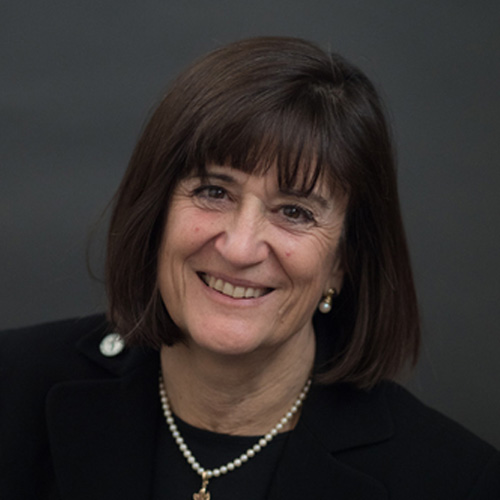
Ann Swanson
Executive Director
Chesapeake Bay Commission (CBC), Annapolis, MD
Thursday, July 29, 2021
4:05 | 4:35pm
Ann Swanson has served as a leader in the Bay restoration for nearly 35 years, the last 29 as the Executive Director of the Chesapeake Bay Commission, a tri-state legislative authority serving the states of Pennsylvania, Maryland and Virginia. It is the Commission’s responsibility to sponsor legislation at the state level and to work with state legislators, members of the U.S. Congress, and the federal and state regulatory agencies to coordinate programs aimed at restoring the Chesapeake Bay.
Although Ann operates in a highly political environment, she is trained in the sciences. A trained wildlife biologist and forest ecologist, she graduated with honors from the University of Vermont and Yale University; she served as a member of the University of Vermont’s Rubenstein School of Environment and Natural Resources for 23 years and as its Chairman for 11. Among her many awards, in 2001, she was awarded the Bay region’s highest Conservation Award, Conservationist of the Year, in 2008 was recognized by general assembly resolutions in Pennsylvania, Maryland and Virginia, in 2011 was awarded the YMCA Outstanding Women in Industry Twin Award, in May 2012 received an honorary doctorate from the University of Vermont, in 2013 received the Alliance for the Chesapeake Bay Environmental Leadership Award, and in 2015 she was recognized as an Admiral of the Chesapeake Bay in the state of Maryland. Ann has been married for 32 years, is a published illustrator, an accomplished gardener, backpacker and sea kayaker, and is a mother of two boys.
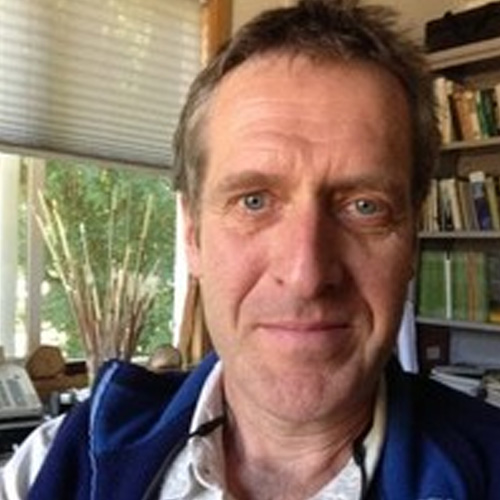
Rolf Gersonde
Forest Ecologist
Seattle Public Utilities, Seattle, WA
Rolf is a forest ecologist in the Watershed Management Division of Seattle Public Utilities. His team implements the upland and aquatic restoration programs for the Cedar River Habitat Conservation Plan and Watershed Management Programs. Their focus is on monitoring and implementation of the upland habitat restoration programs, and designing and implementing forest restoration projects aimed at improving habitat and functional resilience of the forests in Seattle's mountain watersheds. Rolf is also the Vice President of the Society for Ecological Restoration (SER) PNW chapter, and has organized several regional conferences. He is also involved in organizing the Restoration Professional Program in collaboration with the UW Botanic Gardens. Rolf lives at the foot of the Cascade Range and enjoys exploring the mountain wilderness.

Gordon Reeves
Emeritus Scientist
U.S. Forest Service, Corvallis, OR
Monday, July 26, 2021
1:15pm
Gordon Reeves is an emeritus research fish ecologist at the Pacific Northwest Research Station in Corvallis. He retired in 2018 after more than 35 years of working for the US Forest Service. His expertise is in the freshwater ecology of anadromous salmon and trout, conservation biology of those fish and aquatic aspects of landscape ecology. He has studied the ecology of anadromous salmon and trout in the Pacific Northwest, northern California, Idaho, Alaska, Taiwan, Japan, Russia and New Zealand and published more than 75 papers on the ecology and effects of land management activities on their habitats, conservation plans for them, and dynamics of aquatic ecosystems in the Pacific Northwest. He led committees that developed and evaluated options for managing federal lands in the Pacific Northwest and Alaska and was a member of the NOAA Fisheries Technical Recovery and Biological Review Teams for ESA listed Coho salmon in coastal Oregon. Additionally, he was a member of the panel that reviewed the EPA report on the Pebble Mine in Alaska and was part of a group of scientists who commented on the Corp of Engineers’ Draft Environmental Impacts Statement for this project. He was recently inducted into the Freshwater Fishing Hall of fame for his work on fish conservation.
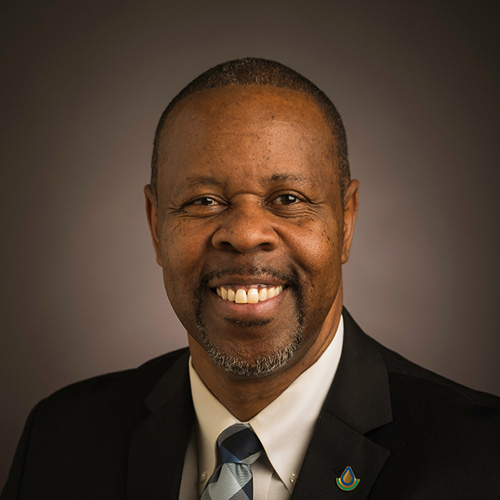
James Tillman Sr.
SE Regional Conservationist
USDA, NRCS, Washington, DC
Tuesday, July 27, 2021
11:35am
James E. Tillman Sr. is the Regional Conservationist for the Southeast. In this role he oversees NRCS conservation programs and activities for the 11 Southeast states and the Caribbean Area.
James served as State Conservationist in Georgia for nine years. Prior to that, he was the Deputy State Conservationist in California and served as Assistant State Conservationist for Programs and Acting State Administrative Officer in Texas. In Illinois, James served as the Assistant State Conservationist for Resource Assessment and Technology.
In his 32-year career with NRCS, James has also held positions as Soil Conservationist, District Conservationist, Resource Conservationist, and USDA/1890 Liaison Officer. He has worked in seven states (Kansas, Missouri, Oklahoma, Illinois, Texas, California and Georgia) and Washington, DC.
James obtained a Bachelor of Science in Agricultural Economics from the University of Arkansas at Pine Bluff. He and his wife, Patricia, have three grown children.

Matthew Young
Fish Biologist
U.S. Geological Survey, California Water Science Center
Sacramento, CA
Monday, July 26, 2021
2:40pm
Matthew Young is a fish biologist with the U.S. Geological Survey, and has been with the California Water Science Center since 2016. He received his B.S. and Ph.D. degrees from the University of California, Davis. His work research is focused on interactions of native and non-native fishes with their environment, including novel ecosystem elements such as altered hydrology and proliferating non-native habitat engineers such as submersed aquatic vegetation. Currently he works in a variety of systems exploring relationships between native fishes and changes to their environment. This includes the spread of non-native species and potential displacement/competition, habitat alteration and the loss of underlying ecosystem processes, and the potential for habitat restoration to provide key mechanistic benefits to native fishes and other aquatic organisms.
Code of Conduct
We are dedicated to providing a harassment-free experience for everyone, regardless of gender, gender identity and expression, age, sexual orientation, disability, physical appearance, body size, race, ethnicity, religion (or lack thereof), or technology choices. We do not tolerate harassment of participants in any form. Suggestive statements, sexual inuendo, or offensive remarks are not appropriate during any activity, including during talks, poster sessions, workshops, social functions, after hours parties, or via Twitter or other online media. Participants asked to stop any harassing behavior are expected to comply immediately. Those violating these rules may be sanctioned or expelled without a refund at the discretion of the organizers. If you are being harassed, notice that someone else is being harassed, or have any other concerns about participant behavior, please notify the organizers immediately.